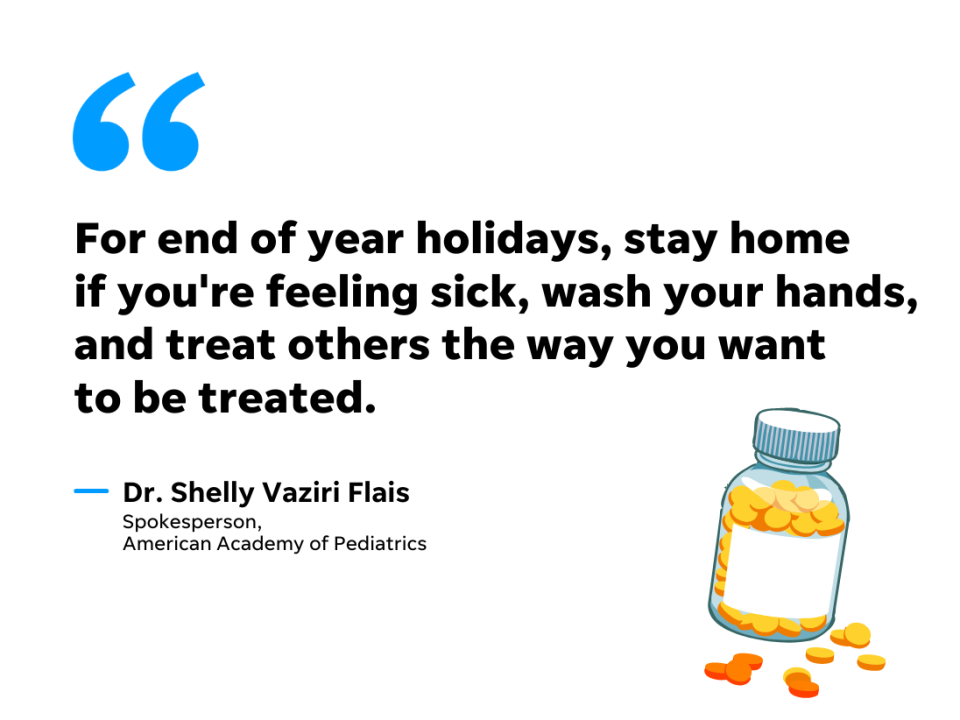Kids ibuprofen and acetaminophen are in short supply. Here's what parents can do.
The sniffles are running rampant among children this year as the country sees a surge in respiratory viruses, leading to an unprecedented demand for over-the-counter medications.
Despite the early warnings from health experts, parents are still confronted by empty pharmacy shelves looking for something to alleviate their kids’ symptoms.
“I’ve been doing this for over 20 years now and this fall-winter is like no other. It’s bananas,” said Dr. Shelly Vaziri Flais, assistant professor of pediatrics at Northwestern University Feinberg School of medicine and a spokesperson for the American Academy of Pediatrics.
Health experts don’t anticipate the shortage to end anytime soon as flu, COVID-19, RSV, and cold cases continue to rise ahead of holiday gatherings.
Over-the-counter drugs for kids: What to know
Pain relievers in short supply include: Children’s acetaminophen, like Tylenol, and ibuprofen, like Motrin and Advil. Health experts say generic versions of these medications are also hard to find.
Other drugs in short supply: Children’s antibiotics, like liquid amoxicillin.
Why experts say this is happening: The surge in respiratory viruses causing cold-like symptoms has driven the demand for over-the-counter medications, said Vaziri Flais. Antibiotics are also in short supply because they're used to treat bacterial infections that often form as a result.
"Viruses are not treated by antibiotics ... but viruses can lead to secondary complications that need antibiotics," she said. "For babies and toddlers, nasal congestion can easily lead to congesting the middle ear space, which is an ear infection."
Can't find OTC medication for your kids? What parents can do instead
Summer Kerley, a doctor of pharmacy and Rite Aid’s vice president of clinical and market access solutions, said there are ways to treat kids’ cold symptoms without over-the-counter medications:
Runny nose: Use saline drops for children and suction bulbs for toddlers or infants.
Cough: Popsicles or two teaspoons of honey for children who are over 1 year old. For children 6 months to a year, use warm fluids like apple juice or lemonade. Turn on a humidifier to increase moisture in the air.
Headache: It’s important to understand why the child might have a headache, Kerley said, and treat the symptom you think could be causing it. Headaches could signal the child is coughing too much or isn’t adequately hydrated.
Fever: Dress the child in loose-fitting clothing to keep the body temperature cool, Kerley said. She also suggests a lukewarm – not cold – bath. Cold water may cause the child to shiver, which would raise their body temperature.
Overall, it's important to keep the child comfortable while riding out the fever. Keep them hydrated and let them rest.
"It's OK to have a fever," Kerley said. "A fever is our body's way of saying, 'hey, I’m trying to fight an infection.'"
OTC medication shortage: What parents shouldn't do
Don't use vaporizers: While health experts suggest a humidifier to reduce congestion and coughing, they recommend against using vaporizers as the hot steam could burn the child.
Don't give aspirin: Giving aspirin to children with a viral illness can lead to Reye's syndrome, a condition that causes swelling in the liver and brain, according to the Mayo Clinic.
Don't crush or halve adult medication: It's difficult to accurately dose over-the-counter medication for children based on weight by halving or crushing adult pills, Vaziri Flais said.
Avoid OTC medications designed to alleviate multiple cold symptoms: She also recommends against giving children under 6 daytime or nighttime over-the-counter medications with multiple ingredients for multiple cold symptoms.

Your child's symptoms: When to call the doctor
Vaziri Flais recommends calling a doctor if your child shows one or more of these signs:
Fever for more than three days
Wheezing or respiratory distress
Inability to drink or keep fluids down
Not urinating for more than six hours
She urges parents to avoid the emergency room unless they think their child is experiencing a medical emergency.
Overall, Vaziri Flais said the best way to care for a sick child is to keep at-home remedies simple, treat what your child is feeling (not the number on the thermometer), trust your gut, and "typically, less is more."
“Just because (over-the-counter drugs) are sold in the store doesn’t mean your child needs it," she said.
Go deeper: Health and your children
Doctors warn flu season is 'fierce' and is getting worse. Here's what to know.
Bivalent COVID vaccine for America's youngest kids gets federal approval
RSV in infants and kids is threatening to overwhelm hospitals
Follow Adrianna Rodriguez on Twitter: @AdriannaUSAT.
Health and patient safety coverage at USA TODAY is made possible in part by a grant from the Masimo Foundation for Ethics, Innovation and Competition in Healthcare. The Masimo Foundation does not provide editorial input.
This article originally appeared on USA TODAY: Kids Tylenol, Advil, Motrin in short supply: What parents should know
